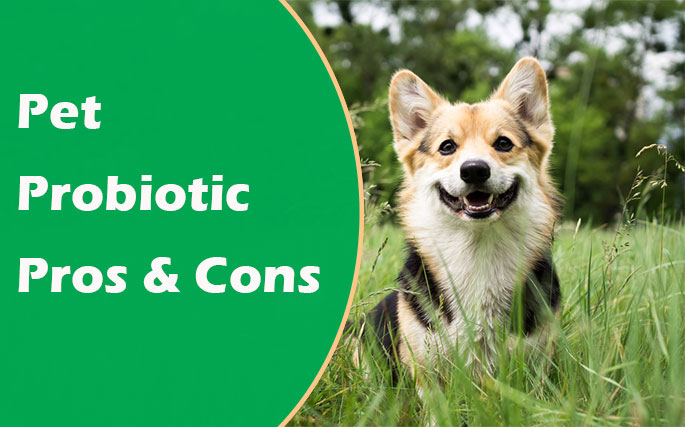
Probiotics are marketed as health and immunity boosters these days and celebrities using it has become one of the reasons for its rising popularity. But does this mean probiotics are useful? The short answer is yes. Probiotics have been proved to ease up diarrhea and other gastrointestinal problems including irritable bowel syndrome in humans. Again, it raises the question, are probiotics good for pets?

Read More:
- 6 Things You Must Do If You Are Bitten By A Dog
- 4 Tips For Removing Pet Hair from Your Couch with a Vacuum
- 10 Ways to Groom Your Dogs
- Dog Training- Try Food Treats to Shaping New/ Good Behaviors
- why pets are good for your health
There is no solid research available yet suggesting the absolute effect of pet probiotics. Probiotics are basically microorganisms including different strains of bacteria and yeasts that promote good health when taken in appropriate amounts.
What Do Probiotics Do for Your Pets?
Before we move to the benefits and side effects of probiotics and probiotic supplements, let’s know how it works for your canines and felines. Actually, the bacteria present in them are considered good bacteria that improve gut health. Your pet’s intestines have both good and bad bacteria and when probiotics enter the guts, they help to maintain the balance between the two.
Not only probiotics improve digestion but they also boost the absorption of nutrients from the food consumed. That said, your pets will have an improved digestive system, better gut health, better overall health, and improved immunity. Most diseases are associated with guts and when probiotics are keeping guts happy, their health and wellness improve.
Probiotics: Benefits And Side Effects
So what do you consider while choosing the right probiotic for your dog or cat? There are some veterinarian prescribed probiotics available, but is that the only parameter you should think of? Some experts believe that probiotics made up of the bacteria obtained from the species which they will be used for. In other words, if you are intending to provide probiotic to your dog, it should be made from the bacteria present in a dog’s intestine.
However, probiotics supplements prepared from human-derived bacteria also seem to work for dogs and cats.
Good probiotics for pets contain the strains of Lactobacillus, Enterococcus, and Bifidobacteria. Still, you won’t always find these strains easily in every product. Probiotics may not contain the amount of bacteria present alive in the product or the strain which are required for healthy GI microflora mentioned on the label.
That is why it is always recommended to use a vet-approved probiotic supplement. Most of them are backed by scientific research and studies that the strain of bacteria used in a certain number of CFUs (Colony Forming Units) are effective.
Also, some products have microemulsion to help the bacteria survive the whole environment in your pet’s stomach and through the rest of the GI tract. That said, not all probiotics work for your dog or a cat. In other words, if product A works for your one dog then it is not necessary that it will work the same for your other pooch.
Moreover, sometimes an imbalance in the bacterial environment can cause diarrhea in your pets. If your pet is experiencing chronic digestive problems including diarrhea, you should consult your vet first.
Conclusion
Pet probiotics help in improving your pet’s overall health and well-being. But a particular probiotic supplement cannot guarantee their effects for each dog. Moreover, the quality of the product depends on the strain of bacteria present. If you choose the vet recommended and one of the best probiotics available, the chances are high that your pet will benefit from it. And if you observe anything wrong in your pet’s digestive health and bowel movements, do not hesitate to consult a vet.



